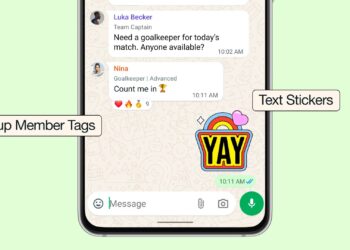It was 2017, and the world was watching one of the most politically charged moments in recent U.S. history. Tensions were high, with public debates raging over immigration policies, religious freedom, and the concept of belonging. As these issues played out on the global stage, brands found themselves navigating treacherous waters, deciding whether to take a stand or stay silent.
For Airbnb, the decision was clear.
Brian Chesky, Airbnb’s CEO, had long championed the idea of creating a platform that went beyond just travel accommodations. He envisioned a company where anyone, no matter their background, could belong anywhere in the world. But the question lingered: Could Airbnb translate that ethos into action at a time when the world seemed more divided than ever?
The answer came in the form of a 30-second commercial aired during Super Bowl LI.
The Birth of a Campaign
In the months leading up to the campaign, the Airbnb team huddled together, searching for a way to respond to the divisive rhetoric they saw unfolding. They didn’t want to simply push a product; they wanted to make a statement.
Their goal wasn’t just to promote their platform but to reflect the core values that they believed the world desperately needed: acceptance, inclusivity, and diversity.
On February 5, 2017, during one of the world’s most-watched sporting events, Airbnb unveiled the “We Accept” campaign. The ad was simple, just a collection of faces—young, old, black, white, male, female, Muslim, Christian. But it wasn’t the visuals that made the ad memorable; it was the message. On a black screen, in bold white letters, Airbnb declared: “We believe no matter who you are, where you’re from, who you love, or who you worship, we all belong.”
The words hit home for millions. In a time when divisive politics were splitting communities apart, Airbnb’s message was one of unity.
The Power of Timing
Airbnb’s decision to run this ad during the Super Bowl was no accident. With over 100 million viewers watching, the stakes were high. The world was watching, and Airbnb had positioned itself as a brand willing to take a stand on one of the most important social issues of the time.
They weren’t just offering lodging anymore—they were offering an idea of acceptance, belonging, and global citizenship.
But beyond the message, there was risk. Taking a stance on such a sensitive issue could alienate some customers. Would the campaign be received positively, or would it spark backlash?
The Response
Within minutes of the ad airing, Twitter exploded with the hashtag #WeAccept, with millions of people sharing the video and expressing their support for Airbnb’s bold stance. Over 5 million views were garnered within the first two days, and the conversation extended well beyond the Super Bowl audience.
Airbnb had tapped into something deeper—a growing desire among people to see brands stand for something more than profits.
But the campaign didn’t stop at just a TV ad. Airbnb backed up their message with action. They announced plans to provide short-term housing for 100,000 people in need, including refugees, victims of natural disasters, and relief workers.
In the weeks that followed, the company rolled out several initiatives, further embedding their message of inclusivity and acceptance into their business model.
Airbnb wasn’t just talking the talk; they were walking the walk.

What Made the Campaign Work
The success of “We Accept” wasn’t just about timing—it was about authenticity. Airbnb didn’t simply hop on a social trend; they had long built their brand around the idea of inclusivity and diversity. The campaign was a natural extension of their existing values, making it resonate deeply with audiences.
From a marketing perspective, the campaign was a masterclass in purpose-driven advertising. The video wasn’t flashy. It didn’t rely on celebrity endorsements or slick production. Instead, it told a human story—one that transcended borders and backgrounds.
By keeping the visuals simple and the message clear, Airbnb made sure that the focus was on the values being conveyed. There was no ambiguity in their stance. They believed that everyone should belong, and they were willing to use their global platform to say it.
A Double-Edged Sword
Despite its overall success, the “We Accept” campaign wasn’t without its critics. Some questioned whether Airbnb’s internal practices reflected the inclusivity they championed in the ad.
Were all Airbnb hosts as accepting as the brand’s messaging suggested? Stories of racial discrimination by hosts had surfaced before, raising questions about how deeply the company was addressing the issue internally.
Yet, this criticism didn’t overshadow the campaign’s impact. In fact, it spurred Airbnb to take more concrete action, reinforcing policies that penalized discriminatory behavior and educating hosts on the importance of inclusivity.
The Legacy of “We Accept”
Seven years later, Airbnb’s “We Accept” campaign is still cited as one of the most effective purpose-driven campaigns in recent history. It showcased how brands can use their platforms to spark conversations that go beyond business, tapping into the collective consciousness of their audience.
For Airbnb, “We Accept” wasn’t just a marketing campaign—it was a statement of purpose. In a world where marketing is often driven by data and metrics, this campaign reminded us that sometimes, the most powerful messages are the ones that speak to our shared humanity.

















































